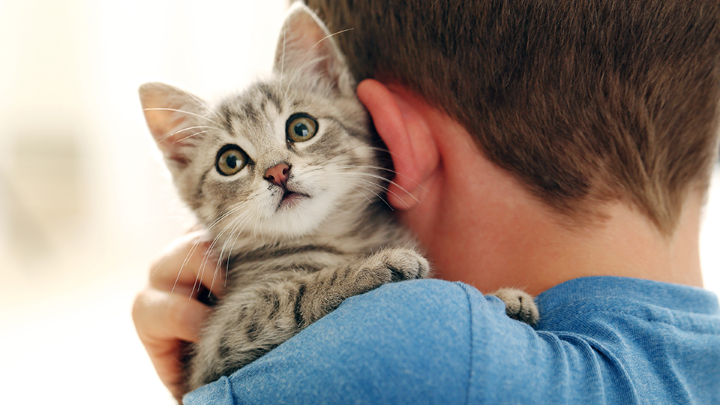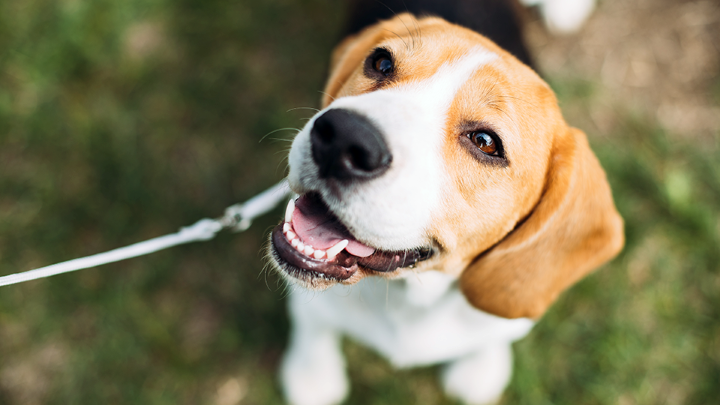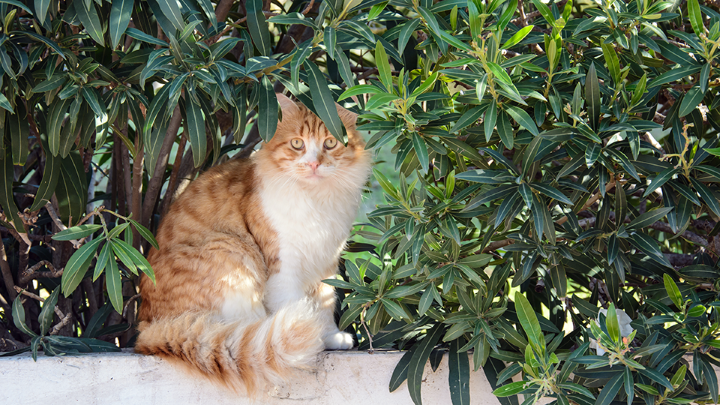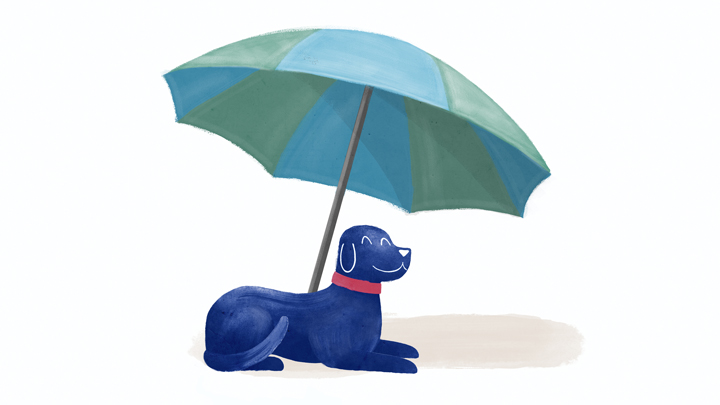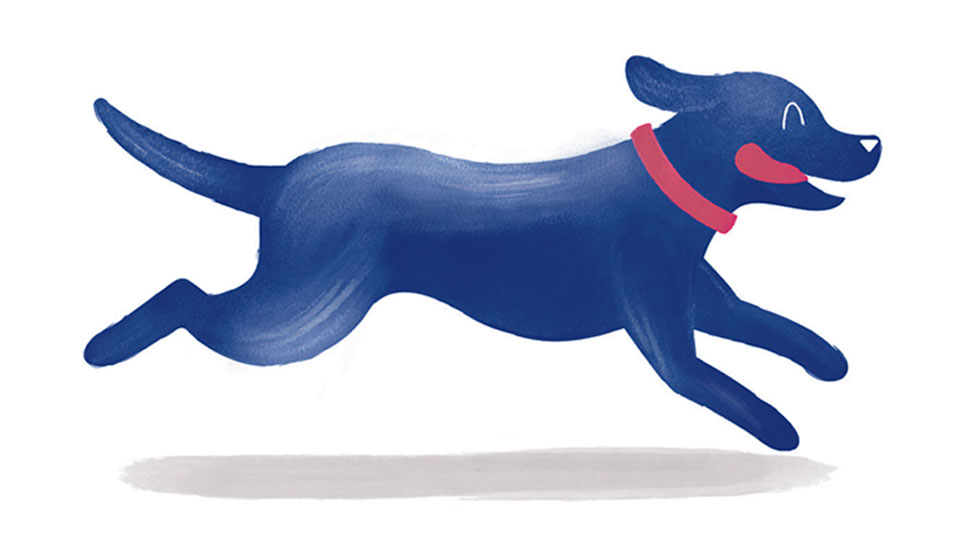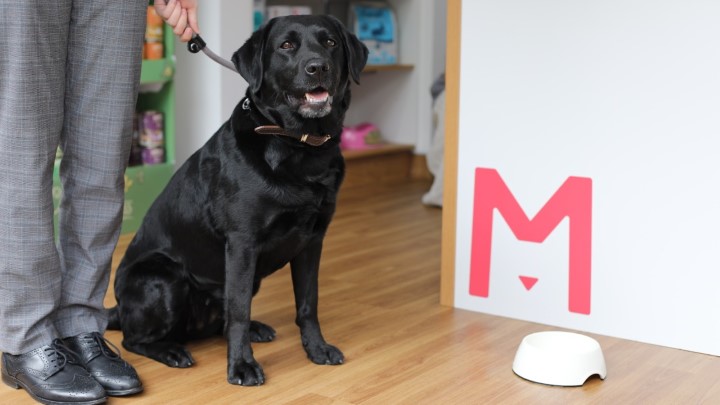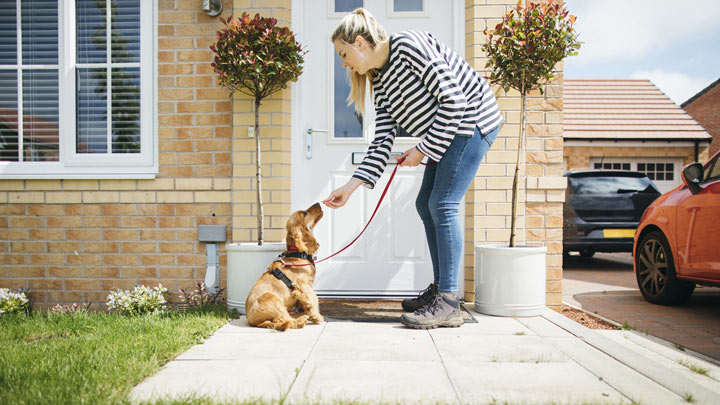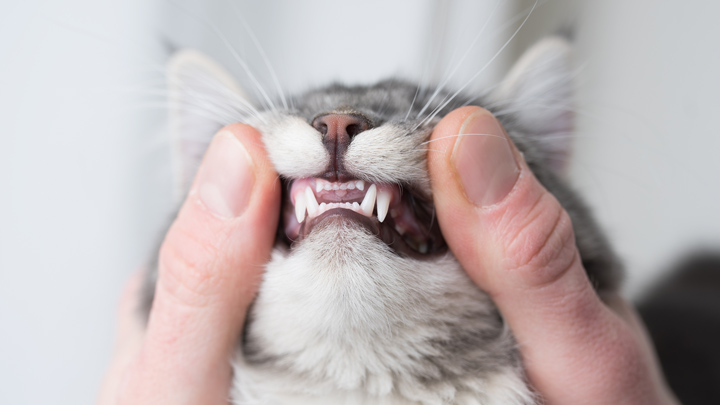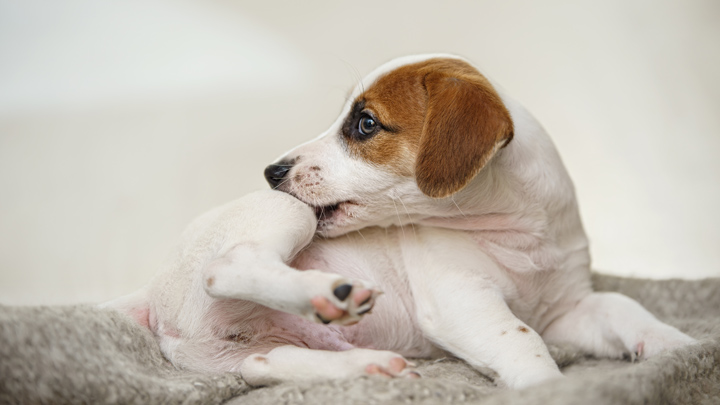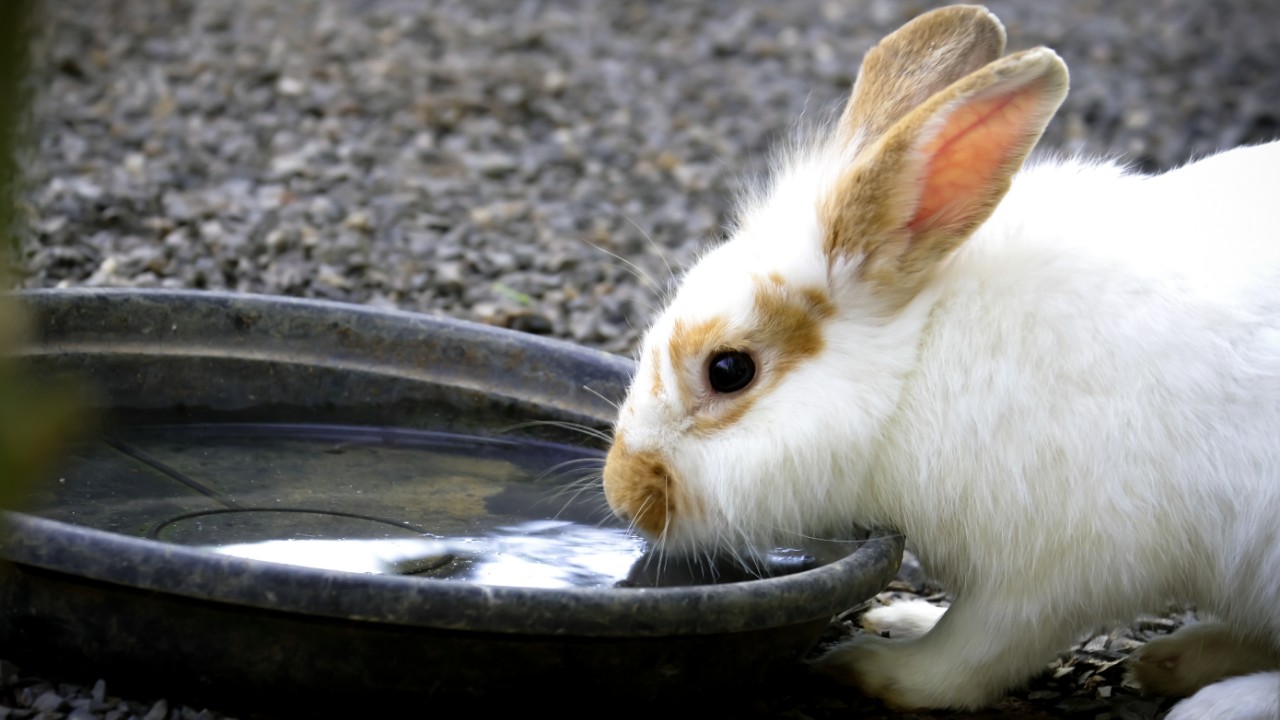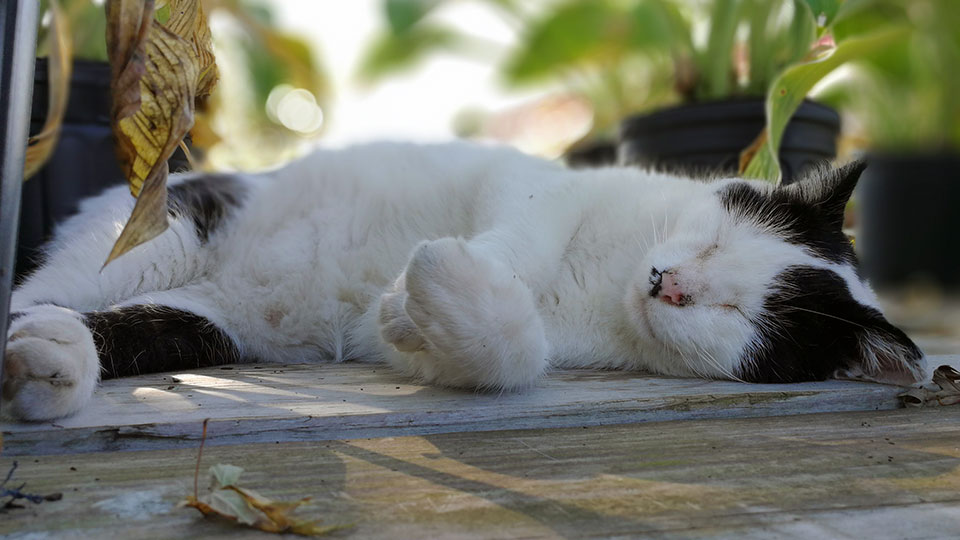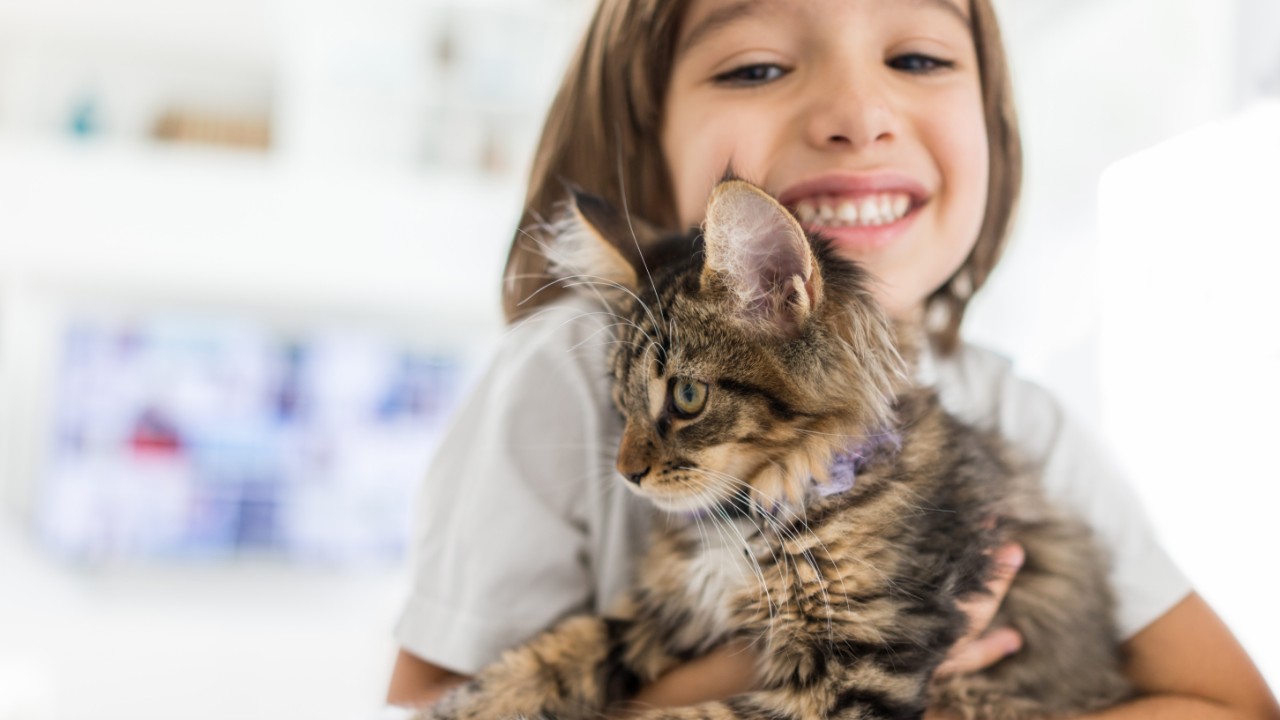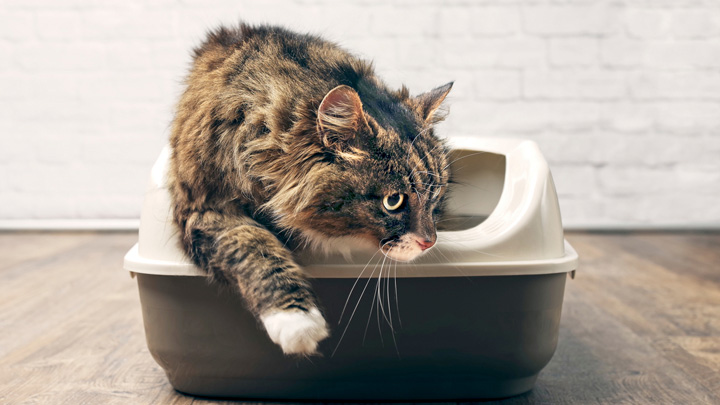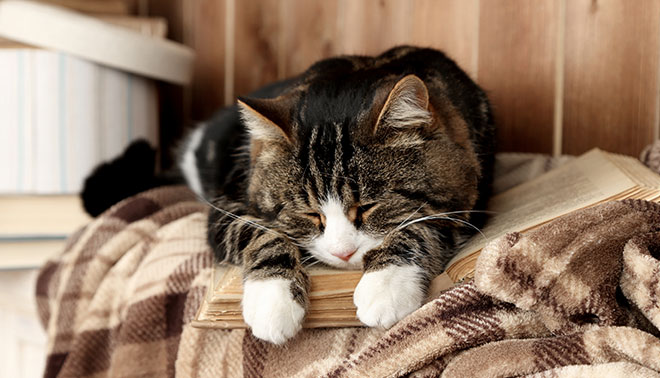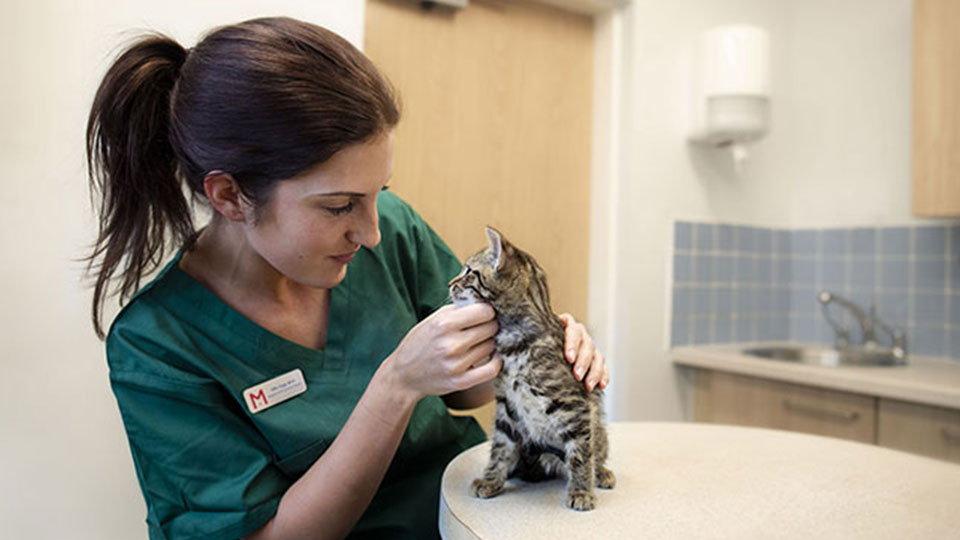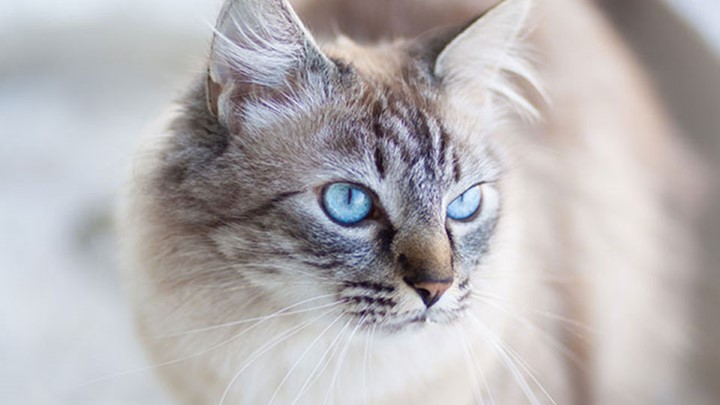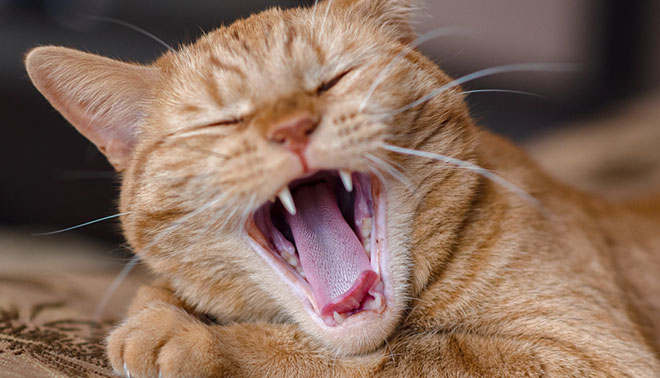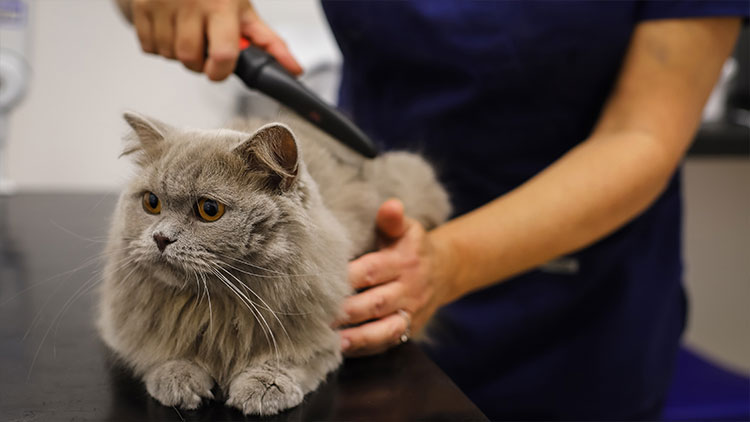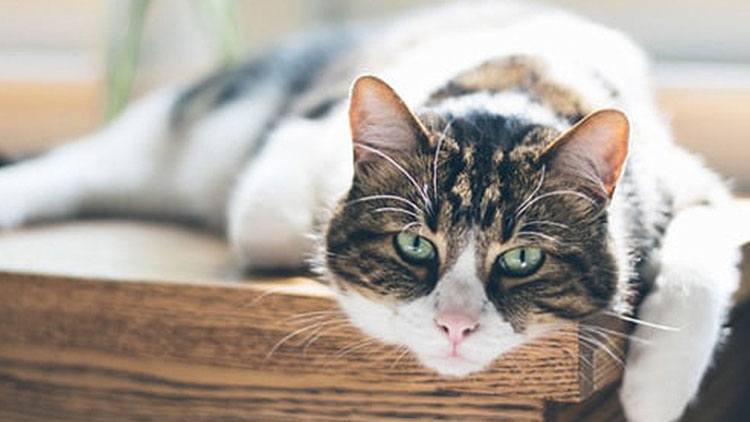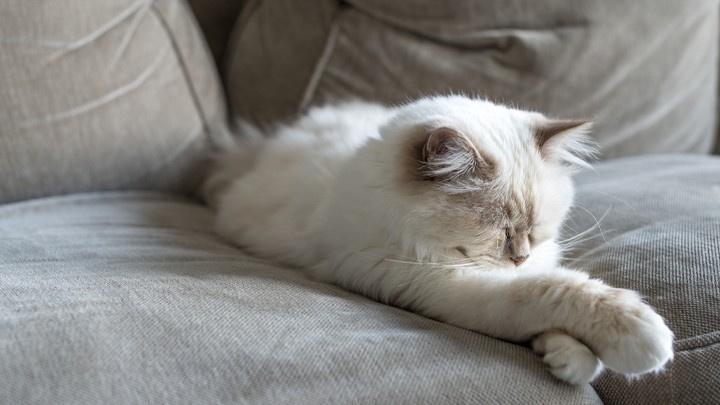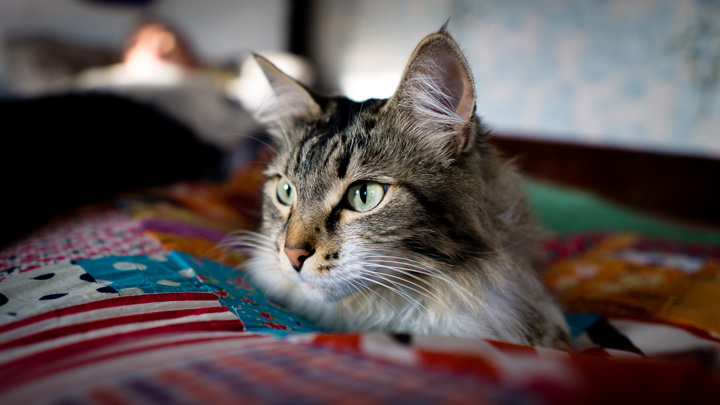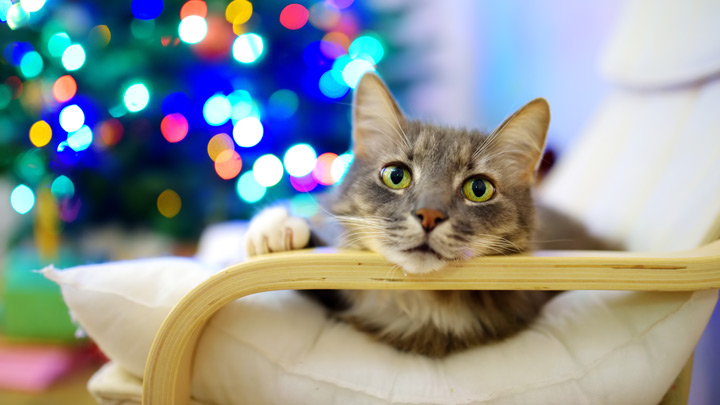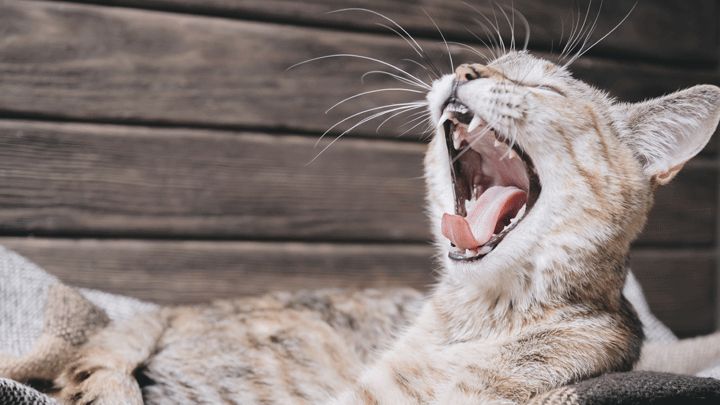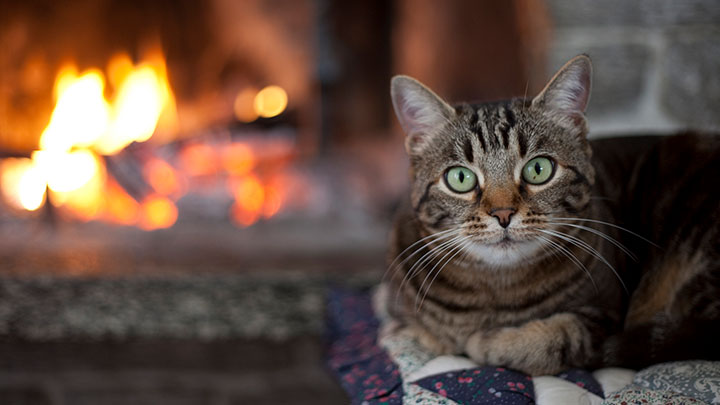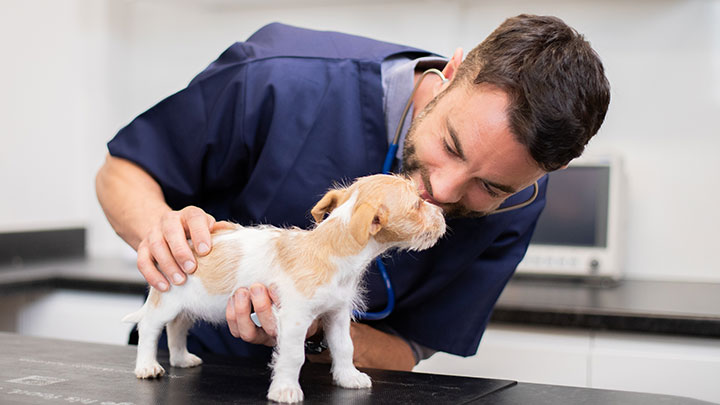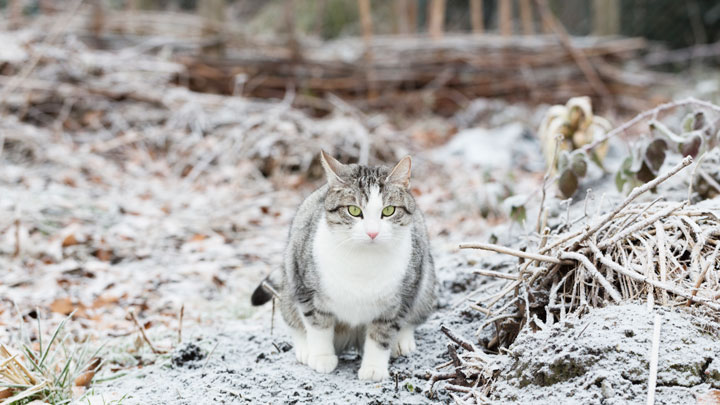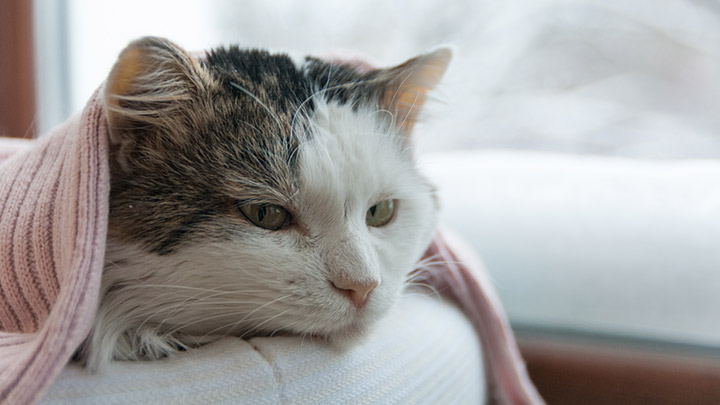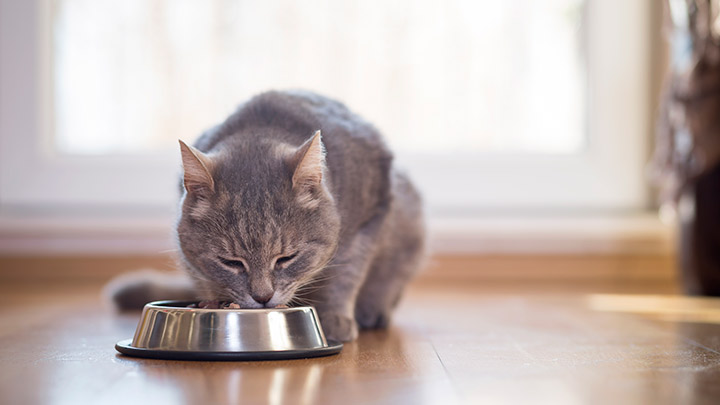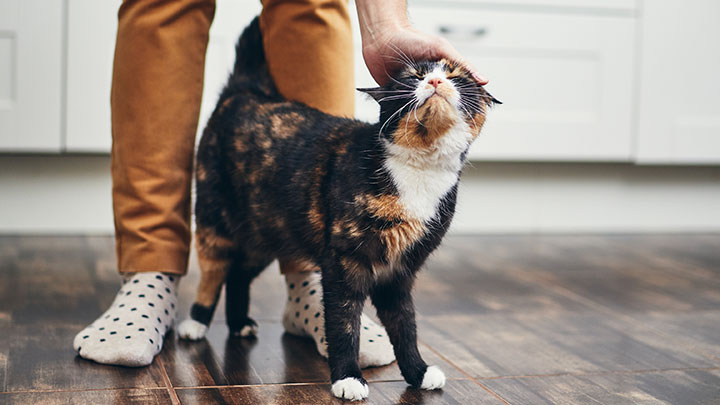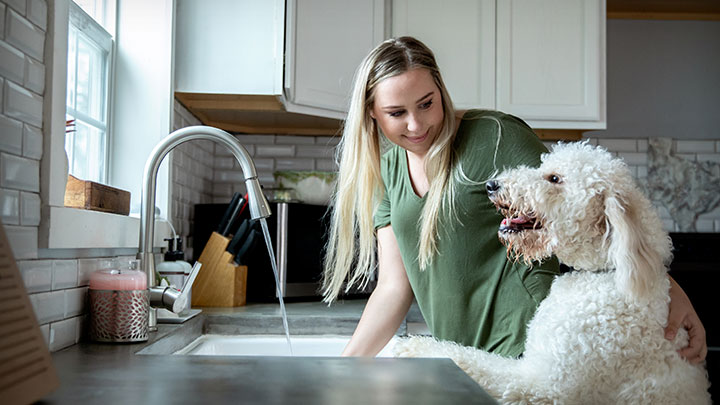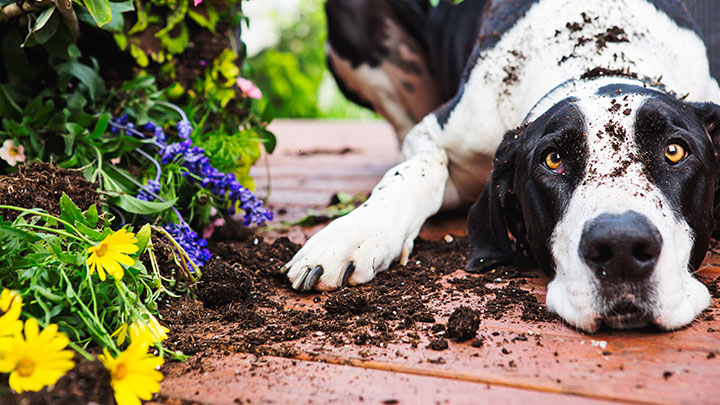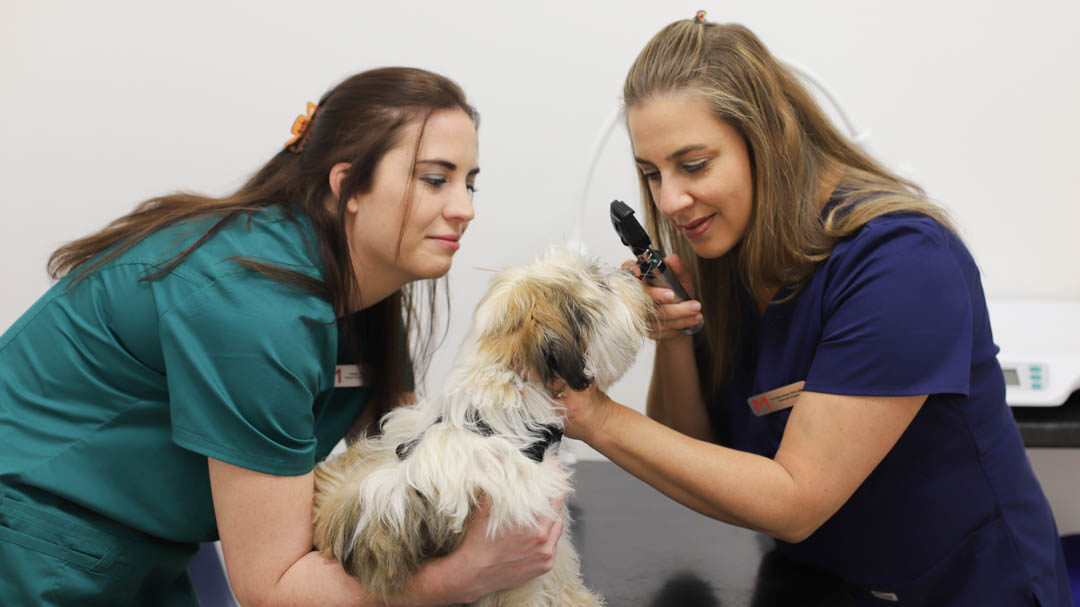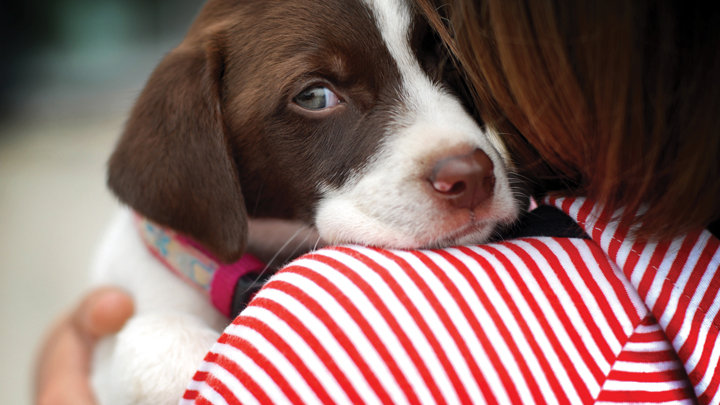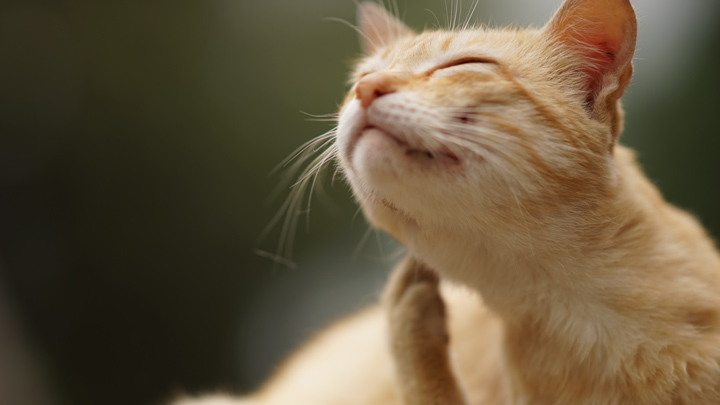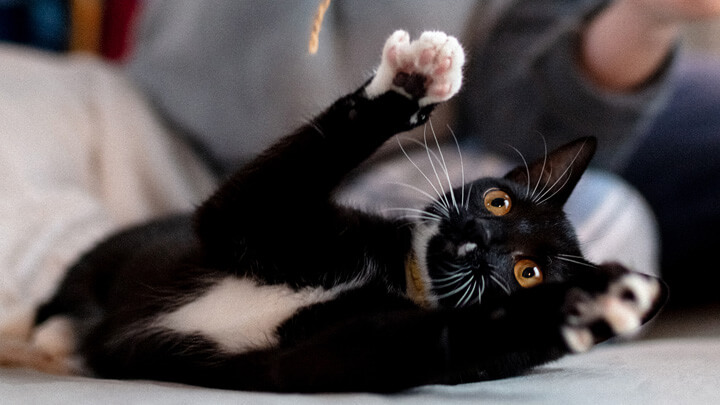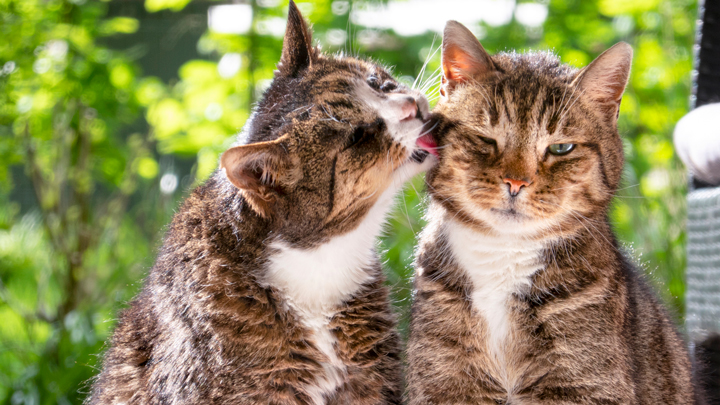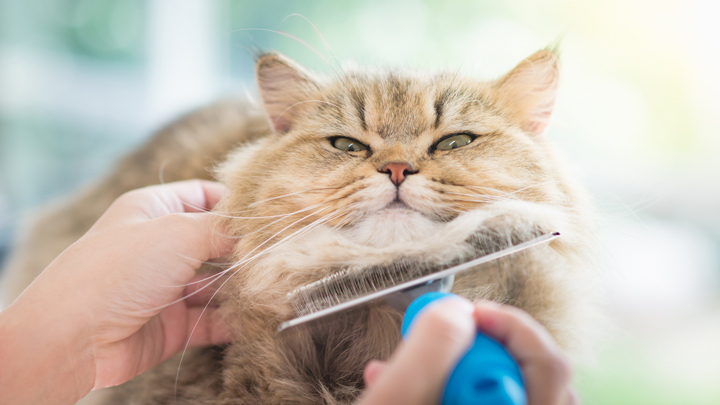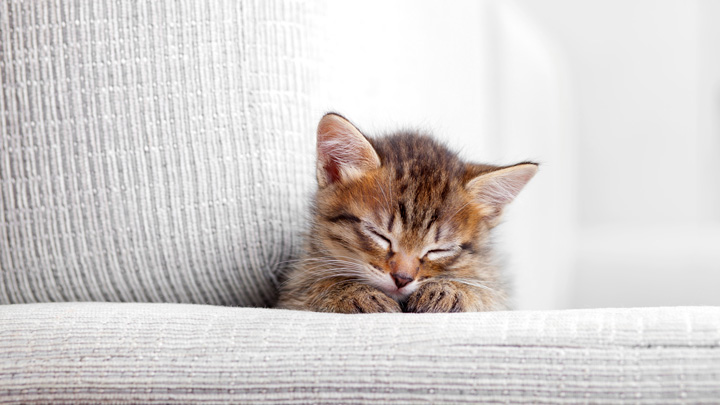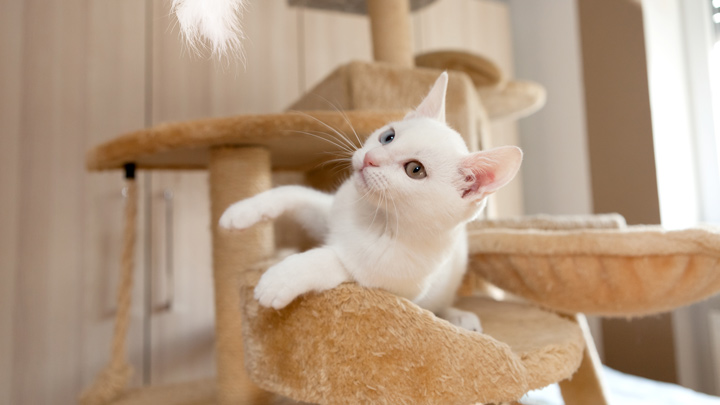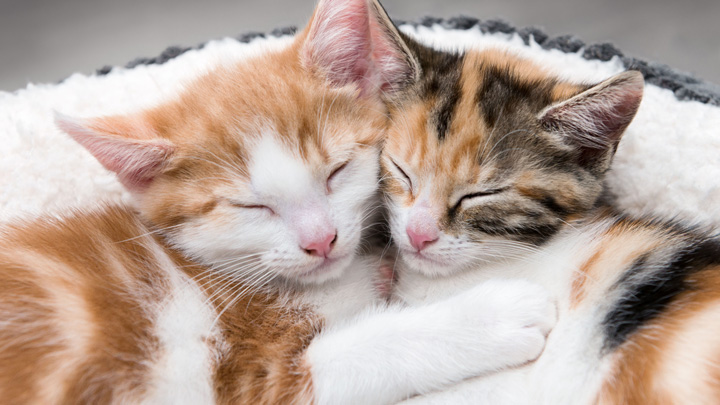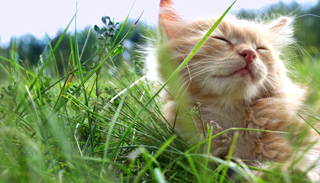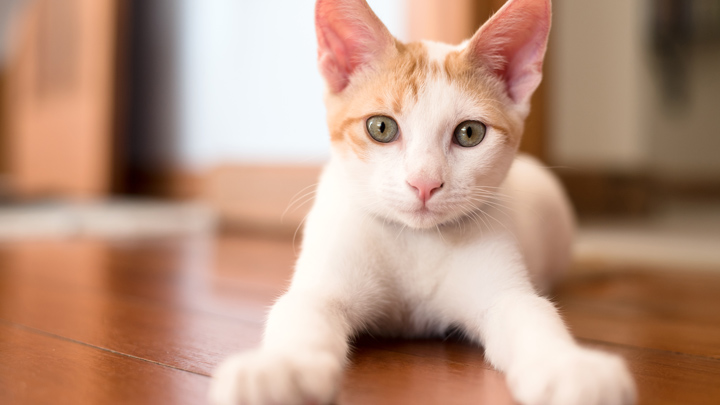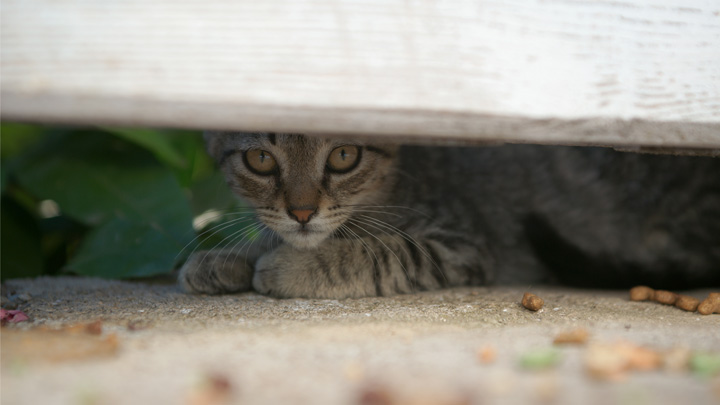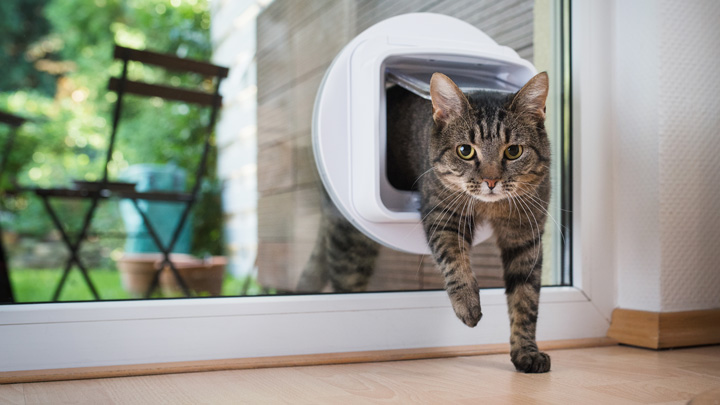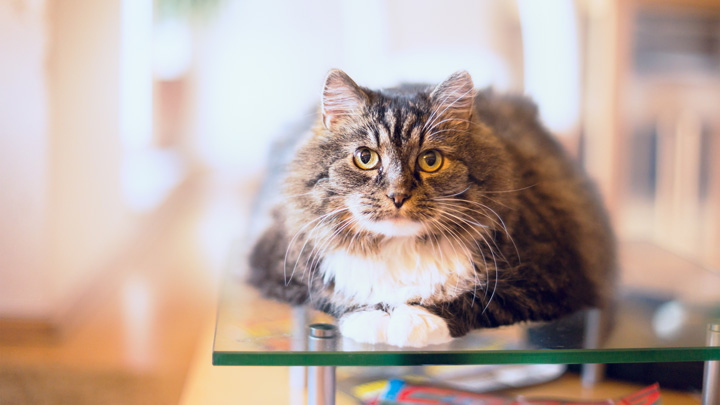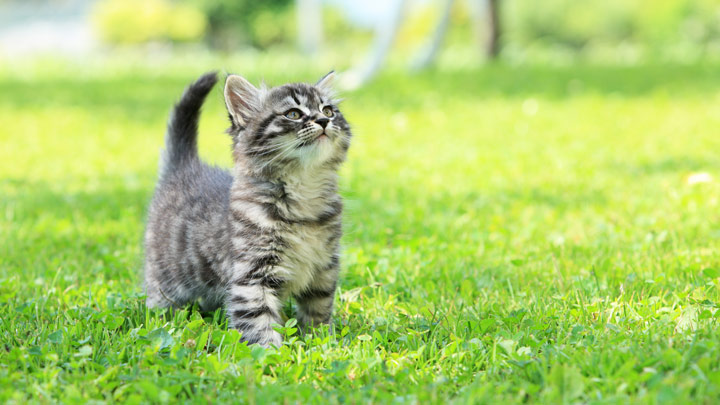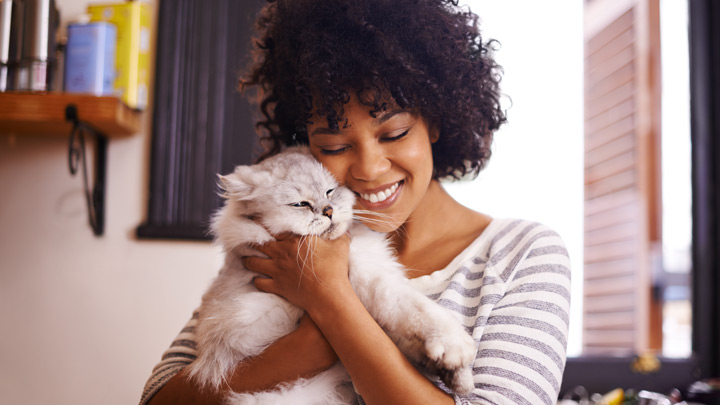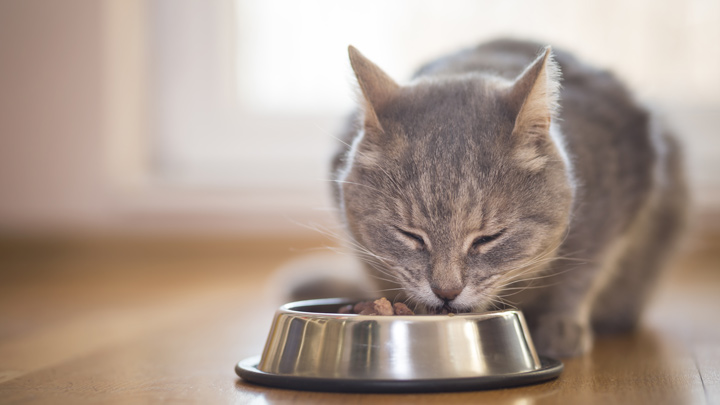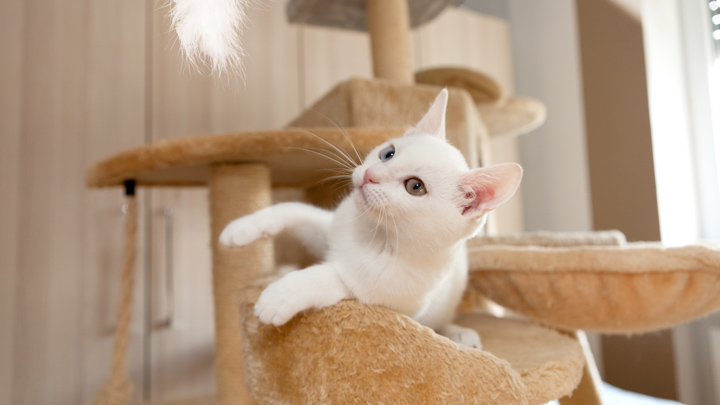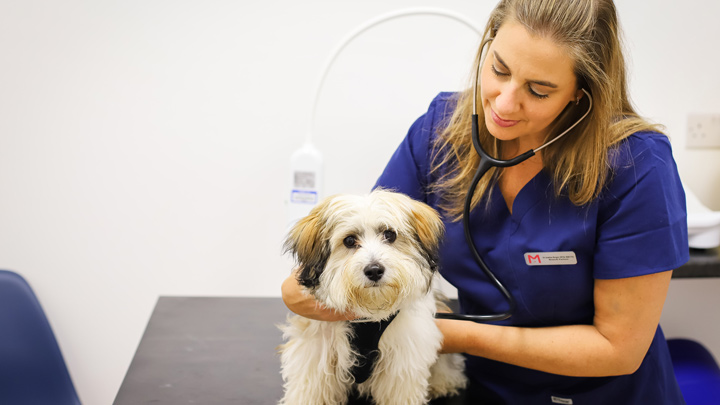Heart Disease In Cats
Cats can be affected by a range of heart disorders; some cats may be born with a defect (Congenital), others may develop one during their life (Adult onset). Find out more about why early detection and awareness is important.
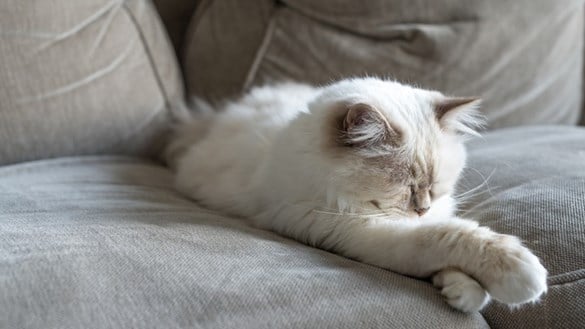
Congenital heart disease
Congenital heart disease is relatively rare in cats and is usually present at birth. There are a range of different types, however they usually involve a defect in a valve, or in the wall that separates the left and right side of the heart.
These defects often affect the way the heart pumps blood around the body. One of the side effects of this is turbulence - which we can hear as a heart murmur. This is normally detected during a kitten’s initial health checks; however, congenital heart issues can sometimes go unnoticed for many years as not all defects affect cats when they are small and may only become noticeable as they grow or get older.
Adult cat onset heart disease
Adult onset heart disease usually occurs as cats get older due to general wear and tear on the structures of the heart, but can also be due to concurrent disease. Heart disease can also result from a previous injury or infection.
Cardiomyopathy in cats
The most frequent type of adult onset heart disease found in cats is cardiomyopathy, which is a disease of the heart muscle. Hypertrophic cardiomyopathy (HCM) is the most common and involves the heart muscles becoming too thick and strong, making the wall of the heart less flexible, narrowing the space that the blood flows into and weakening the pumping action of the heart. According to the Animal Health Trust, 1.2 million cats are affected with HCM in the UK.
Causes of cardiomyopathy in cats
The origins of most cardiomyopathies are unknown, although genetics and lifestyle may play an important role. For example, Maine Coon cats are often predisposed to cardiomyopathies due to a defect in their DNA which causes the muscle walls to double, or even triple, in thickness.
HCM can sometimes occur as a result of other health conditions including anaemia, high blood pressure, and hyperthyroidism (or an overactive thyroid).
Cats can also experience dilated cardiomyopathy which occurs if their diet lacks the amino acid taurine. However, most cat food now contains adequate amounts of taurine, so this form of heart disease is becoming increasingly rare.
What are the early signs and symptoms of heart disease in cats?
The symptoms of heart disease in cats include:
- Heart murmurs
- Unexpected weight loss
- Lethargy
- An increase in breathing rate or effort
- A change to the rhythm of the heartbeat
Heart murmurs in cats
Heart murmurs are surprisingly commons in cats. Studies indicate that as many as 50% of cats have a heart murmur. The good news is that approximately half of these cats will not go on to develop heart disease, nor will it adversely affect their quality of life. To complicate matters, these heart murmurs can sometimes disappear.
A murmur may be present when a cat is feeling stressed, but once they have calmed down the heart settles back to a normal beat. This is called a haemodynamic murmur.
On their own heart murmurs are not a reliable indictor of an underlying heart issue, but they are without a doubt something that you need to keep a watchful eye on. Regular checks and an annual heart scan will put your mind at rest.
As well as a heart murmur your vet will also listen for a change to the rhythm of the heartbeat. This can sometimes be the only indicator of heart disease.
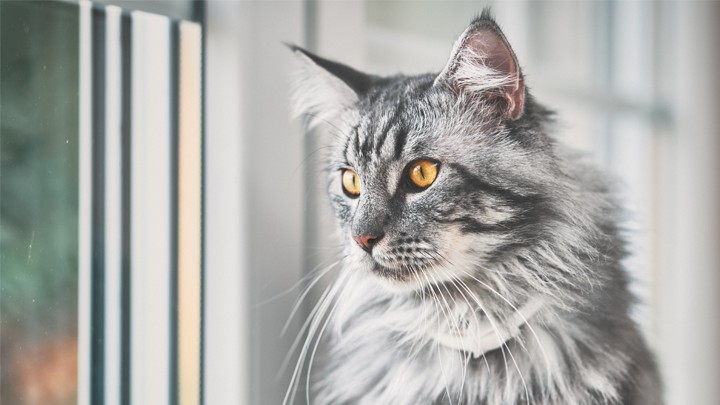
How to prevent heart disease in cats
Although the causes of adult onset heart disease are still largely unknown, lifestyle factors including diet and exercise are believed to play a role.
It’s always a good idea to give your cat a healthy diet and plenty of opportunities to exercise. A heart-healthy diet includes high protein, low-salt cat food, and minimal treats. It can be difficult to encourage your cat to exercise, but a few minutes every day playing with a toy or climbing a scratching tree can help.
How to treat heart disease in cats
The specific treatment of heart disease depends on the cause. Very few congenital heart issues can be cured and, in most cases, careful monitoring is the best option to watch for and treat secondary signs.
Treating Hypertrophic Cardiomyopathy in Cats
There’s also currently no cure for HCM, as changes in the size and structure of the heart are irreversible. In cases where HCM is a result of another treatable condition, the symptoms can be alleviated when the underlying issue is addressed.
Regular medication can help reduce the risk of heart failure resulting from HCM. The right medication can help relax the muscle, slow down the heart rate and decrease the workload of the heart. It’s important to remember that owners of cats with HCM need to monitor their pet closely for any changes in their breathing and vital signs, as well as attend regular health checks with a vet.
Regular health checks
Regular health checks with your vet play an important role in preventing and detecting heart disease. Your vet will listen to your cat’s heart using a stethoscope and will be able to identify any abnormalities in your cat’s heartbeat. If something is detected your vet will discuss the need for any further investigations that may be needed, or they may feel that it is just something that needs to be monitored regularly.
If your pet needs a general anaesthetic at some point – an echocardiogram would normally be recommended to ensure that risk of heart issues under anaesthetic are minimised.
As with many conditions, heart disease may worsen as a cat gets older. If your vet has confirmed that your cat has a heart condition, keep up with the regular checks and talk to your vet about whether you need to adjust your pet’s diet and lifestyle.
Heart disease in cats FAQ
If you notice your cat is losing weight, changes in how they’re breathing, or lethargy, you should take your cat to the vet immediately.
You should always feed your cat a healthy, balanced diet to ensure a healthy weight and keep their blood pressure under control. Ensure your cat gets as much exercise as possible. Take your cat for regular check-ups at the vet to catch any early signs of heart disease or other problems, this is especially important as cats get older.
Find your nearest practice
Related Cat Advice

Our Healthcare Plan For Your Cat
With the Medivet Healthcare Plan, you can save up to £280 each year and that’s without discounts that the plan offers on top.
Learn more
Our Pet Care Advice
At Medivet, we’re committed to providing trustworthy, expert advice that helps you care for your pet. Don't miss our latest advice for keeping your pets happy and healthy.
Search advice



